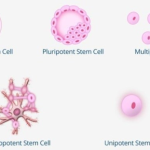What Is Integrative Medicine Actually?
How many times have you gone to see your doctor for a specific problem only to be given a prescription and sent on your way? The prescription seems to help but doesn't make the problem disappear completely. So as soon as you finish your prescription, the problem returns. It's a nasty cycle that you've found yourself in time and time again. And it's probably the reason you found this article. When you're looking to resolve something happening in your body, our traditional Western medicine has fallen short. It's excellent at treating the symptoms, but not the real root cause of the problem.
We believe in the body's ability to heal itself, which is why at Vitality Integrative Wellness, we practice Integrative Medicine.
What is Integrative Medicine?
If this is the first time you've heard of Integrative Medicine, you probably assume it's some alternative or "new age" way of treating illnesses and ailments. And many other traditional doctors may tell you the same, simply because it's not part of their education.
According to the University of Arizona Center for Integrative Medicine, IM is a healing-oriented medicine that takes account of the whole person, including all aspects of lifestyle. It emphasizes the therapeutic relationship between holistic doctor and patient, is informed by evidence, and makes use of all appropriate therapies.
The Origins of Integrative Medicine
The idea of integrative medicine is not a new concept. As early as 1902, the term naturopathy was being used to reference a theory and philosophy of health and healing using a compilation of natural doctrines. The namesake of this term, Benedict Lust, saw this as the future of healing. For 30 years, there was no firm definition of ‘naturopathy’; rather, Lust clearly attempted to combine all methods of drugless healing and natural therapies into his philosophy. These methods and therapies included practitioners of all sorts; osteopaths and chiropractors, as well as some lesser-known medical modalities such as mechanotherapists and naprapathy. A myriad of others included practitioners of neuropathy, physcultopathy, sanipractice, food science, suggestive therapeutics, and Swedish movement.
Benefits of Integrative Medicine
Integrative medicine is a collaborative process that considers all aspects of patient care when addressing an illness. This can have many benefits, including improving overall health and patient satisfaction.
- Holistic approach. Patient care in holistic medicine treats the whole person, the mental, physical, and spiritual sides of a person. Traditional Western Medicine treats symptoms and the disease, while integrative health care looks at other factors that can influence health, such as environment, behavior, genetics, and social surroundings.
- Illness Prevention. Many approaches to integrative medicine include illness-prevention strategies that may reduce or prevent the onset of chronic illnesses.
- Reduced healthcare costs. By promoting preventative measures, patients can reduce the doctor’s visits and illness frequency.
- Patient Autonomy. Patients want their voices to be heard when it comes to chronic disease management. By focusing on wellness skills, patients get more than just a prescription, therefore maintaining more control over their health.
- Patient-Centered Care. Integrative Medicine focuses on patient-centered care, which builds a relationship of trust between the provider and the patient. In this way, a physician can learn more about a patient's concerns and more accurately understand their symptoms.
Uncovering the Root Cause
Identifying and treating the root cause of an illness is a core principle of Integrative Medicine practitioners. When it comes to illness IM doctors distinguish symptoms from underlying root causes. While symptoms are the body’s way of communicating problems, they are not the cause of the illness. Symptoms are simply the body’s way of expressing healing. Because they focus on root causes, Holistic or Integrative Medical physicians may be a good fit for those who have struggled with unresolved systems for months or years. For example, most headaches are treated with over-the-counter medicine, but an Integrative Wellness approach might be to look at underlying food allergies or GI Tract sensitivities as the cause of the allergies before turning to medication.
In a world where traditional Western medicine often falls short, Integrative Medicine offers a fresh perspective on healing. At Vitality Integrative Wellness, we believe in the body's innate ability to heal itself, and that's why we practice Integrative Medicine. It's not some alternative or "new age" approach; rather, it's a healing-oriented medicine that considers the whole person, taking into account all aspects of lifestyle. By emphasizing the therapeutic relationship between doctor and patient, informed by evidence, and utilizing all appropriate therapies, Integrative Medicine aims to address the root cause of the problem rather than merely treating the symptoms. With a holistic approach, illness prevention strategies, reduced healthcare costs, and patient-centered care, Integrative Medicine offers a comprehensive and empowering approach to healthcare. By uncovering the root cause of illnesses and focusing on individualized care, Integrative Medicine opens up new possibilities for long-term health and well-being. It's time to break free from the cycle of temporary relief and embrace a truly integrative approach to healing.


